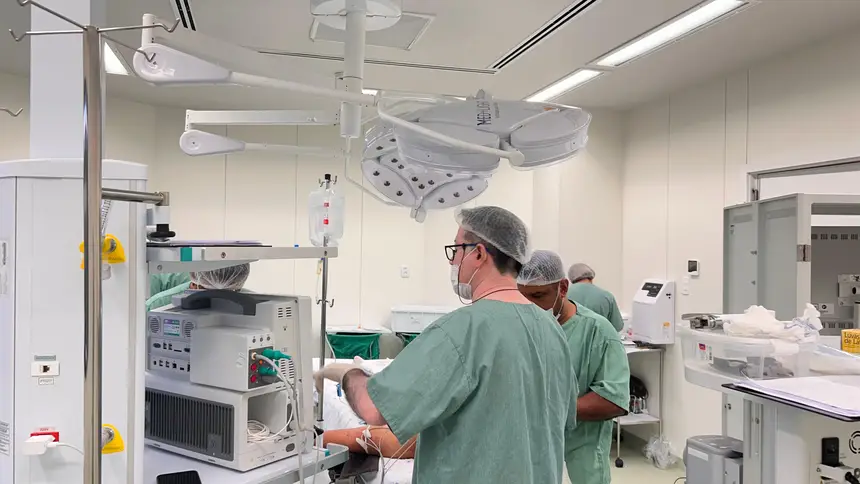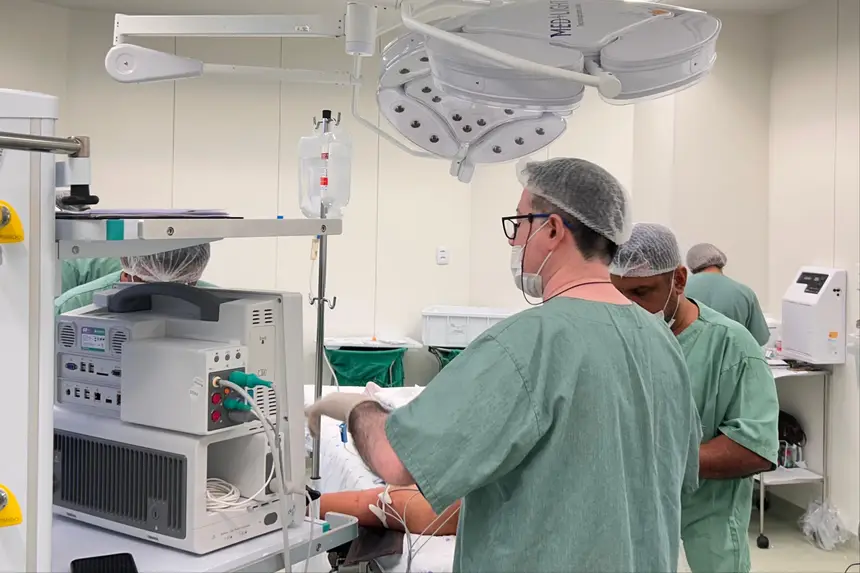Hospital da Mulher do Pará performs first video nephrectomy
Procedure using minimally invasive technology reduces the risk of complications and the patient's recovery time, diagnosed with kidney stones
The Hospital da Mulher do Pará (HMPA), in Belém, records another important advancement in the field of urology by performing the first video laparoscopic nephrectomy last Friday (18). The procedure involved a patient from Portel, a municipality in the Marajó Archipelago, expanding the availability of minimally invasive treatments for women in the State.

The kidney removal surgery was conducted by the urology team, coordinated by Dr. Cleybismar Begot, who highlighted the complexity of the case. “We operated on a patient with a history of kidney stones for over a year, which led to the functional loss of one kidney and recurrent urinary infections, in addition to intense pain. The nephrectomy was the necessary solution to restore her quality of life,” explained the urologist.
Unlike conventional (open) surgery, which requires a large incision to remove the kidney, laparoscopic nephrectomy uses high-resolution cameras and surgical instruments inserted through small “ports” in the abdomen. This technique ensures faster recovery, less bleeding, and a reduced risk of complications.
According to Dr. Cleybismar Begot, the benefits of the video laparoscopic approach are significant. “While open surgery typically requires an average of up to 60 days for the patient to resume their routine, laparoscopic surgery reduces this time to 15 to 30 days. We also have less need for blood transfusions, shorter hospitalization time, and a lower risk of infections, such as pneumonia or urinary infections, which are common in prolonged hospital stays,” emphasized the specialist.
The medical team emphasizes that technological advancement is not limited to the surgical technique but also includes the structure of protocols and the preparation of professionals. “This is a type of surgery established in Brazil, but it is the first time we have performed it here at the Hospital da Mulher, a recently inaugurated unit, with all the necessary safety. In addition to modern equipment and materials, we invest in excellence standards with ready protocols and routines. This makes the procedure safer, so it can be offered to the largest number of patients and ensure the best work of the surgical team,” added the urologist.
Kidney stone - The clinical condition of the operated patient is a warning about the formation of kidney stones, a painful and potentially serious condition. The disease can affect any age group, and in women, frequent urinary infections contribute to the formation of more complex and difficult-to-treat stones.

“Our Urology Service is prepared to address cases ranging from kidney and ureteral stones to obstructive kidney diseases. With video laparoscopic nephrectomy, we have expanded our range of treatments with cutting-edge technology, directly benefiting women's health,” emphasized Cleybismar Begot.
With this first procedure, HMPA reinforces its role as a reference in the Northern region for comprehensive women's health care, ensuring access to less invasive surgeries and more effective clinical outcomes.
Service: To be treated at the Hospital da Mulher, the patient must first seek care at a Basic Health Unit (UBS) or another health unit in the municipality where they reside or the nearest region. They can also obtain a medical referral at a Usina da Paz. The Hospital da Mulher do Pará is located at Avenida Gentil Bittencourt, No. 2175, São Brás neighborhood.










